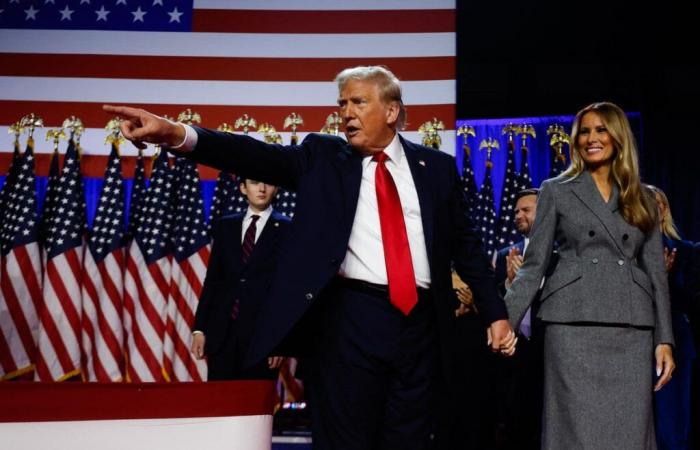“Sud Ouest” contacted Roger Cohen this Wednesday, head of the Paris bureau of the “New York Times”, back in the United States during this election.
What is the atmosphere like this Wednesday in the state of Colorado, where you have been staying for two weeks?
Calm. The vote went off without a hitch. Donald Trump’s victory was not a big shock. We have felt for several weeks that he was gaining the upper hand over the campaign. He communicated a lot about concrete things, the price of products in supermarkets, for example, or taxes, when Kamala Harris’s speeches seemed abstract.
In Donald Trump’s success, what role does his personal equation play?
It is crucial. I think that Donald Trump won above all thanks to his personality, to what he manages to embody: the energy of a man who survived several assassination attempts, the virility, the authority. This positioning clearly appealed to a male electorate who feels “emasculated” by several economic or societal transformations. More generally, people here have the feeling of knowing Donald Trump well, even when they hate him. Few feel like they know Kamala Harris, her true temperament, her deep convictions.
Roger Cohen, reporter and columnist at the New York Times
JULIEN ROUSSET ARCHIVE
What themes dominated the debates?
Inflation, immigration. I don’t think I’ve heard the word “climate” once in the last fortnight. Trump’s rhetoric – “our economic difficulties are due to illegal immigrants” – found an echo among the population that the Democrats underestimated.
Donald Trump won above all thanks to his personality, to what he manages to embody: energy, virility, authority.
We describe a very divided American society, is this also what you see in Colorado?
She is very polarized. My county voted 60% for Kamala Harris. Neighboring county 70% for Trump. People continue to talk to each other even if they don’t share the same opinions. But what strikes me is how each “camp” is immediately identifiable by the way of dressing, the general appearance, which communicate even before words the political sensitivity of each. This is fairly new in the United States.
Have the fractures that appeared in 2016 during Trump’s first victory deepened?
They moved. They are less ethnic. Donald Trump succeeded in attracting a Latino and African-American vote. He transformed the Republican Party into a multi-ethnic party of the working and middle classes.
The other huge difference with 2016 is that voters will no longer be able to say, three and a half years after the attack on the Capitol, that they “didn’t know”. They knowingly voted for a candidate who promises mass deportations, dismantling the rule of law, and hunting down his adversaries. This vote shows that a significant part of the American population is tempted by a more authoritarian system, à la Orbán. Everyone knows that Trump is a threat to democracy. No one can seriously believe that he has changed. But a majority of Americans chose to take this risk.






